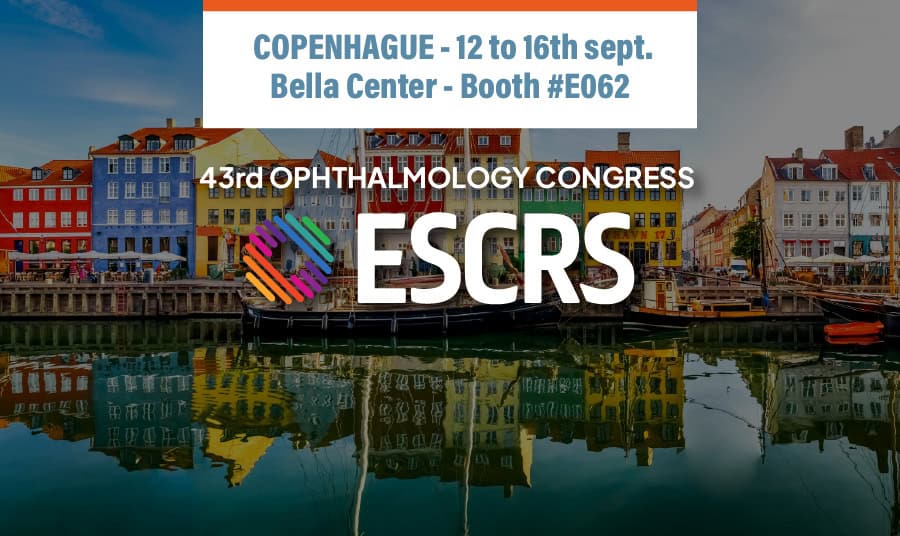From 12 to 16 September, meet Evolucare’s subsidiaries @OphtAI and @Adcis at the Bella Center, booth #E062, on the occasion of the European Society of Cataract and Refractive Surgery congress.
🔬 Adcis will present Kerify Vision, its automated corneal topography analysis solution, designed to provide professionals with rapid, reproducible and objective decision support, particularly in pre-operative assessments and patient follow-up.
🔍 Discover OphtAI’s latest advances in the diagnosis of retinal diseases. Our solutions enable rapid and accurate detection of pathologies such as diabetic retinopathy, glaucoma and age-related macular degeneration.
A constantly evolving AI solution
Developed in collaboration with renowned partners (AP-HP, UBO, Adcis), OphtAI is powered by advanced algorithms capable of automatically detecting a wide range of ocular pathologies, including:
- Naevi
- Hypertensive retinopathy
- Retinal vein occlusion (CRVO + BRVO)
- Macular hole
- Epiretinal membrane
- Cataract
- High myopia
- Retinitis pigmentosa
- Laser photocoagulation scars
- Pigment migration
- Retinal pigment epithelium alteration
- Normal / abnormal eye classification (patented technology)
- MIDD

These innovations complement the pathologies already detected by OphtAI, such as diabetic retinopathy*, AMD (age-related macular degeneration), and glaucoma.
* (detection and grading)
** (and Drusen detection for AMD)
MyOphtAI: Simplicity, Autonomy, Efficiency
In response to growing pressure on healthcare professionals, OphtAI is launching an innovative new service: MyOphtAI, a monthly subscription offer with no commitment, including a free trial and unlimited use.
👉 Zero hassle, zero click. Filing’s done, it’s automatic.
Kerify by ADCIS: Improving the corneal transplantation process
Kerify helps eye banks to assess corneal tissue in a quantified, reproducible and accurate way. In association with Eye Bank of America and Lion’s Gift of Sight.
A strong network of partners and integrators
OphtAI is supported by a robust ecosystem of trusted integrators, including Topcon, Optomed, Crystalvue, and Umami View, and strategic partners such as Oplus, Téo, and Area. This collaborative approach ensures optimal interoperability and efficient field deployment.
Experience OphtAI live at our booth
At booth E062, you’ll have the opportunity to:
- Explore real-life use cases
- Speak with our AI experts
- Test our latest innovations in real-world conditions
A unique chance to discover how our technology enhances the work of eye care professionals, enabling early diagnosis, greater efficiency, and reduced disparities in access to eye care.


